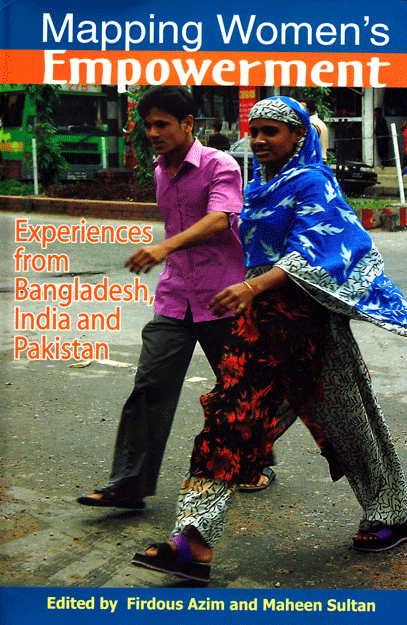
- Shop
- Gender Studies
- Mapping Women's Empowerment
Mapping Women's Empowerment
Experiences from Bangladesh, India and Pakistan
https://uplbooks.com/shop/9789848815106-mapping-women-s-empowerment-8298 https://uplbooks.com/web/image/product.template/8298/image_1920?unique=6db39ac
| Language: English |
Tags :
Book Info
Tradition and modernity are perhaps the two poles against which women of South Asia are pitted. The main elements of tradition seem to be comprised of religion. Religion occupies a somewhat difficult position in the largely secular terrain that speaks of the empowerment of women. This fascinating volume explores the role that religion, culture and society play in the social and political positioning of women. The collection of essays in the book aims to capture the variety of policies, discourses, debates and interventions that have influenced the lives of women in South Asia and to identify those that have led to greater empowerment of women. The papers emerged from a workshop held at Dhaka in 2006, where participants from Bangladesh, India and Pakistan presented papers under the themes of 'Voice', 'Body' and 'Work', and probed at the many levels at which the issue of women's empowerment had become one of the central points of national and regional development. The contributors assess the current situation and provide a rallying call for progressive politics that is committed to universal values. The essays also review as well as show us the new directions that are opening up new pathways for women to traverse. The three South Asian nations represented here share a common history of colonisation and nation-making and have had similar cultural struggles. The literature thus emerging from these presentations, will hopefully open up newer and more innovative ways of looking at women in the region, and help formulate strategies and policies for their future. This important volume will appeal to anyone interested in issues of equal opportunity, gender discrimination and human rights.

Firdous Azim
Firdous Azim is a Professor at Department of English in University of Dhaka. Her main interests are in feminist and colonial literary criticism. She is the author of The Colonial Rise of the Novel. She is co-editor of Other Englishes: Essays on Commonwealth Writing; Infinite Variety: Women in Society and Literature and Different Perspectives.

Maheen Sultan
Maheen Sultan: is coordinator of the Research Programme on Pathways of Women's Empowerment, South Asia Hub and is part of the Development Studies Programme of BRAC University. As a freelance consultant, she works with UNDP, UNICEF and SDC on social development and gender issues. She has worked closely with the government in the post-Beijing Conference period on Gender Mainstreaming and CEDAW Reporting. Her research interests include women's mobilisation and organisation.


